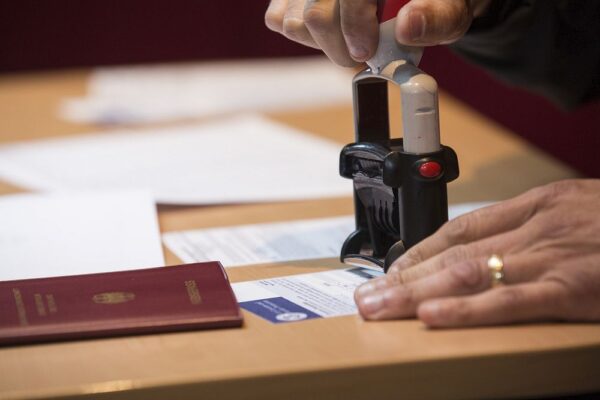051 8439995, 042 35911332

Saskatchewan has faced criticism for limiting immigration to only eight countries in its recent selections through the Express Entry and Skilled Worker Occupations-In-Demand streams of the Saskatchewan Immigrant Nominee Program (SINP).
Saskatchewan issued 646 Invitations to Apply (ITA) for immigration to Canada to citizens of those specific nations during six drawings held in mid-August. However, Saskatchewan’s strategy has drawn harsh criticism from certain public policy professionals.
Things You Will Find In This Page
Review of Political Sociologists About Country-Specific Invitations
Howard Ramos, a political sociologist at the University of Western Ontario, expressed his views in an article published in The Star. He argued that the practice of inviting foreign nationals to apply exclusively from a limited set of countries undermines the integrity of the Canadian points-based immigration system.

According to reports, Ramos expressed concern, saying, “The progress we’ve achieved with the implementation of a points-based system is reversed by going down this slippery slope.”
He also highlighted, “What distinguishes this situation is their transparency in expressing a preference for candidates from these specific countries.”
The political sociologist expressed concern that Canada might be reverting to a practice reminiscent of the late 1960s when Canadian immigration policies favored immigrants from countries with similar cultural backgrounds to Canada. During that time, it was widely perceived that these policies excluded migrants from Chinese, South Asian, and non-European origins.
Canada Gives Equal Opportunity to Each Applicant by Point-Based System
Since 1967, Canada has adopted a points-based system that aims to provide equal opportunities to all applicants. Presently, the Comprehensive Ranking System (CRS) assesses profiles submitted to the Express Entry pool, and Invitations to Apply (ITAs) are issued through Express Entry draws based on candidates’ rankings within this system.
Ramos reportedly emphasized, “Canada was a global pioneer in implementing a points system, which focuses on merit, human capital, and skills. The worrisome aspect of these selective draws is that they seem to prioritize certain countries over individual skills, which could undermine the integrity of the system.”
Saskatchewan Invited Workers From Specific Countries in Draws of August
In response to this criticism, Saskatchewan’s immigration viewpoint argues that the nation-specific pilot is an effort by the government to concentrate on attracting individuals who are more likely to settle in Saskatchewan. The province’s success in keeping Ukrainian immigrants who arrived in the previous year had an impact on the choice to focus on particular nations in the August draws.
During the draws held on August 16, Saskatchewan made efforts to invite foreign workers to the province. They conducted two draws to recruit 35 workers from Ireland, two more draws to attract 176 workers from Poland, Czechia, Germany, Lithuania, Slovakia, and Ukraine, and yet another two draws to engage 431 workers from India.

Saskatchewan employs an Expression of Interest (EOI) selection process, where candidates need to submit an EOI profile and become part of the EOI candidate pool. The province then selects candidates from this pool during regular draws and sends them an Invitation to Apply (ITA). Those receiving an ITA have 60 days to submit a complete application.
The Occupation-In-Demand sub-category has specific eligibility criteria, including:
Minimum SINP Points: Candidates must achieve a minimum score of 60 points on the SINP points assessment grid.
Language Proficiency: Candidates should have a language score of at least Canadian Language Benchmark (CLB) 4. However, employers and regulatory bodies may require higher language proficiency.
Education Requirement: Candidates must have completed one year of post-secondary education, training, or apprenticeship that is equivalent to the Canadian education system.
Work Experience is Required for Saskatchewan’s Occupation-In-Demand Immigration Applicants
To qualify under this sub-category, candidates must meet the following additional requirements:
- Educational Credential: Candidates must hold a degree, diploma, or certificate. The degree or certificate must go through an Educational Credential Assessment (ECA) if it was earned outside of Canada.
- Work Experience: Candidates must have completed at least one year of paid employment in their chosen profession within the previous ten years. This work experience must have been performed in a position that qualifies and is listed as a National Occupational Classification (NOC) level 0, 1, 2, or 3.
- Licensure: When required, candidates must obtain the necessary licensure in Saskatchewan. Applications will not be processed without the required licensure.
- Settlement Funds and Plan: Applicants need to provide proof of settlement funds and a settlement plan, demonstrating their ability to establish themselves successfully in Saskatchewan.
- Application Fee: There is a non-refundable $300 application fee that must be paid online as part of the application process.

Candidates for Saskatchewan immigration under the Saskatchewan Express Entry sub-category must be outside of Canada or have legal status there, providing they are not refugees.
In addition to the previous requirements, Express Entry candidates must fulfill the following conditions:
- Express Entry Profile: Candidates must have an active profile in the Express Entry Pool, including a profile number and job seeker validation code.
- Minimum SINP Points: Candidates must achieve a minimum score of 60 points on the SINP points assessment grid.
- Language Proficiency: Candidates should provide valid language test results from a designated testing agency that correspond to the information in their Express Entry profile.
- Educational Qualification: Candidates must have completed one year of post-secondary education, training, or apprenticeship that is equivalent to the Canadian education system. Additionally, they should have earned a diploma, certificate, or degree.
Degrees and diplomas acquired outside Canada are required to undergo an Educational Credential Assessment (ECA) to determine their equivalency within the Canadian education system for Saskatchewan immigration eligibility.
Candidates for Express Entry must additionally fulfill one of the following experience criteria in their field of study or training:
- One Year of Skilled Profession Experience: A minimum of one year of work experience in a skilled profession (non-trades) within the past 10 years.
- Two Years of Skilled Trade Experience: Two years of work experience in a skilled trade within the past five years.
- One Year of Canadian Work Experience: One year of work experience in Canada within the past three years, which applies to both trades and non-trades occupations.
The work experience must be in a high-skilled, eligible occupation classified under National Occupational Classification (NOC) levels 0, 1, 2, or 3.
In this sub-category, candidates are also required to obtain the necessary licensure in Saskatchewan if their profession is regulated or if they are in a skilled trade. For skilled trades, a certificate is necessary from the Saskatchewan Apprenticeship and Trade Certification Commission.
Furthermore, applicants must submit a non-refundable $300 application fee online and provide evidence of settlement funds along with a settlement plan. These requirements are essential for the application process.
✅Subscribe to our YouTube Channel and Facebook Page to get the latest updates on Immigration, Student Visas, Visit Visas, and Online Businesses
⭕ www.youtube.com/rizwanulhaque22
⭕ www.facebook.com/rizwanulhaque22
